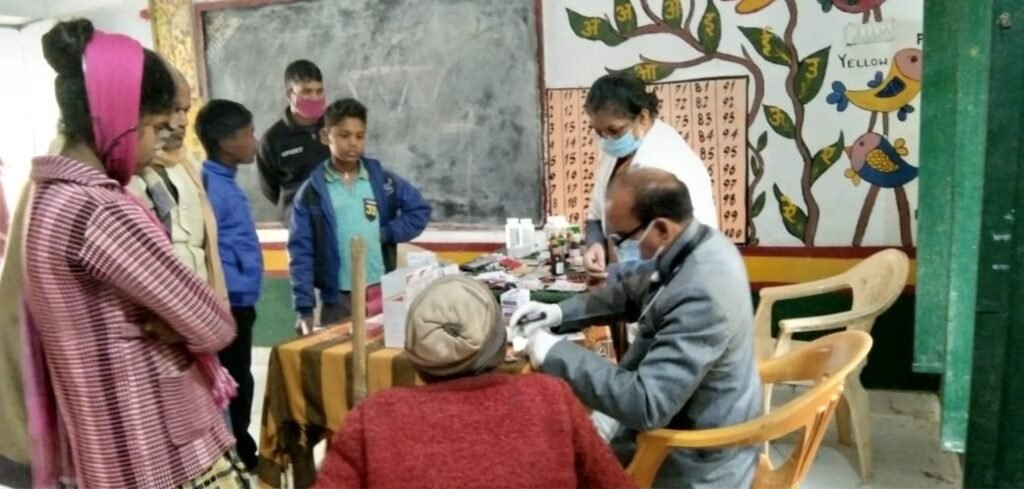Our health intervention programs are designed to address the critical health challenges faced by vulnerable populations, particularly in underserved communities. By focusing on maternal and child health, nutrition, and hygiene, we aim to enhance overall health outcomes and empower individuals with the knowledge and resources they need.
Key components of our interventions include community engagement, education, and access to healthcare services. We conduct awareness programs and workshops to inform families about nutrition, reproductive health, and hygiene practices. Medical camps and nutritional support initiatives are also integral, providing essential services and resources directly to those in need.
Through these targeted efforts, we strive to reduce health complications, improve access to healthcare, and foster a culture of awareness and proactive health management. Our goal is to create sustainable health improvements that empower communities and enhance the quality of life for all individuals, particularly women and children.
Health Rejuvenation in the Slums of Varanasi: Project Summary
The “Health Rejuvenation in the Slum of Varanasi” project, initiated on March 1, 2021, focuses on improving the health outcomes of vulnerable populations in Varanasi’s slums. With a mission to enhance maternal and child health and promote menstrual hygiene, this initiative has made significant strides in uplifting the lives of families by providing essential healthcare education, medical assistance, and nutritional support.
Specifically targeting pregnant and lactating mothers as well as adolescent girls, the project aimed to reach 500 households by February 2023. Over the past two years, we have successfully engaged over 1,000 women and girls through community groups, conducted 66 medical camps, and organized awareness sessions, resulting in increased vaccinations and better access to healthcare services. Challenges such as illiteracy and poverty were met with tailored interventions that fostered awareness around maternal and child health, leading to a remarkable 100% institutional delivery rate and improved menstrual hygiene practices among young women.
As we reflect on our achievements, we recognize the ongoing need for continued support and education in these communities to ensure sustainable health improvements.
